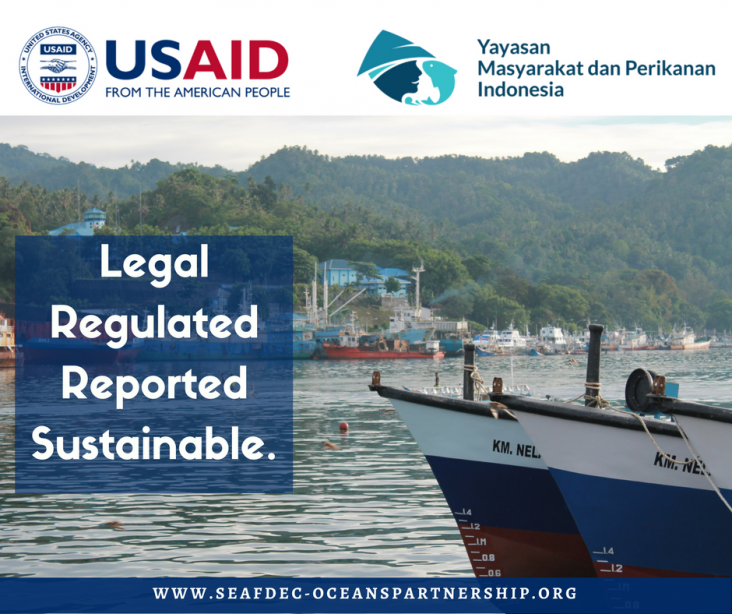
For Immediate Release
BANGKOK, August 22, 2017 – The United States Agency for International Development’s Oceans and Fisheries Partnership (USAID Oceans) and Yayasan Masyarakat dan Perikanan Indonesia (MDPI), have announced a new partnership for reducing illegal, unreported, and unregulated (IUU) fishing. Through the partnership, they will establish an innovative system for promoting sustainable fisheries and marine biodiversity conservation. Piloted in Bitung, Indonesia, the new electronic regional catch documentation and traceability (CDT) system will help small- and large-scale fisheries promote fair and ethical seafood supply chains and meet regional and international import standards.
“Traceable and sustainable seafood products are increasingly in demand by consumers in key international markets and are also a priority of the U.S. Government,” said Todd Sorenson, the Deputy Director of USAID’s Regional Development Mission for Asia. “The harmful effects of illegal fishing impact countless lives and threaten the valuable ecosystems on which international food stocks and local fisheries depend.”
Indonesia, home to some of the world’s most diverse and rich fishing grounds, is a major global exporter of tuna products. In 2015, the country harvested more than 1.3 million tons of tuna – nearly 25 percent of the total worldwide catch. However, the Indonesian Ministry of Marine Affairs and Fisheries and environmental groups estimate that illegal fishing costs the country billions of dollars. In their new partnership, USAID Oceans and MDPI will focus on these critical tuna supply chains and fisheries.
The partnership will enhance regional coordination between national and provincial governments, focus on fair labor and gender equity in fisheries management, and promote overall sustainability. The CDT system will help capture and validate key data on tuna products, including legality and movement, from the point of harvest all the way to the end consumer. Ultimately, these efforts will help the Government of Indonesia meet the standards for ethical and fair supply chains mandated by the new U.S. Seafood Import Monitoring Program and reduce IUU fishing in Indonesian waters.
MDPI, which brings expertise in traceability and fisheries sustainability in Indonesia, works closely with industry partners such as PT Blue Ocean Grace International, PT Nutrindo and Anova, LLC. These partners have signed on to pilot the new CDT technology, signaling a commitment to combatting IUU fishing.
"The obstacles for small-scale fisheries to meet the demands of traceability for the international markets are substantial,” said Blane Olson, director of Anova Technical Services LLC. “However, through our combined technical expertise and experience in public-private partnerships, we can support ASEAN community fisheries’ search for solutions.”
MDPI’s strong relationship with the Government of Indonesia will further support partnership initiatives, which complement USAID’s existing Sustainable Ecosystems Advanced (SEA) project in Indonesia. SEA focuses on additional provinces, reinforcing USAID’s close commitment to the Government of Indonesia on shared maritime priorities; MDPI is also a SEA partner. In addition, USAID Oceans and MDPI are working with the International Pole and Line Foundation and Asosiasi Perikanan Pole & Line dan Handline Indonesia to develop an Indonesian Coastal Tuna Sustainability Alliance to support the coordination of IUU combating initiatives in Indonesia.
USAID Oceans is one of many U.S. initiatives supporting the Association of Southeast Asian Nations (ASEAN) and its 10 member states. The United States partners with ASEAN to support economic integration, expand maritime cooperation, cultivate emerging leaders, promote opportunity for women, and address transnational challenges. Through USAID’s cooperation with ASEAN, the United States helps address the root causes of poverty and instability, and helps lay the foundation for prosperity and security. The United States and ASEAN celebrate 40 years of partnership in 2017, marking a deepened collaboration under the U.S.-ASEAN Strategic Partnership.
# # #







Comment
Make a general inquiry or suggest an improvement.